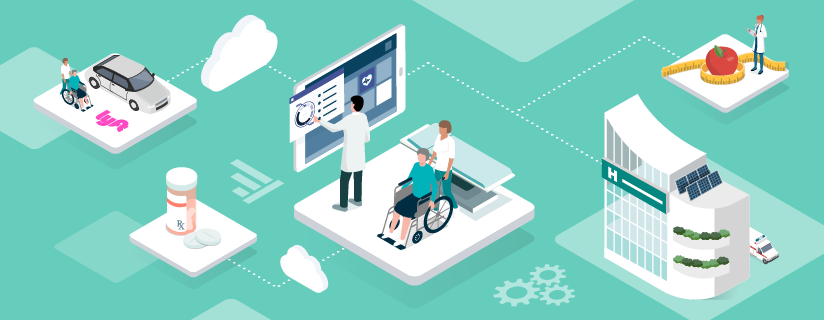Social determinants of health (SDOH) issues will continue to have a huge impact on the delivery of effective healthcare.
At a recent Becker’s Hospital Review conference, I participated in a panel discussion about whether the healthcare industry should take on the responsibility to address SDOH and, if so, how health systems are beginning to do it. Although a vote was not taken, it was clear that panelists and attendees believe the industry must address SDOH in a measured, accountable fashion.
According to the Robert Wood Johnson Foundation: “80 percent of clinical outcomes are attributable to the social determinants of health.” And, according to a July 2017 JAMA article, the average life expectancy is 15 to 20 years shorter in low-income communities than in more affluent communities.
Let me share an example from my experience.
SDOH needs at a community hospital
When I was an emergency medical services director in Northern Kentucky, one of my emergency medical technicians, Chip, came to me with a problem. Three Thursdays in a row, Chip transported a patient, David, to the hospital. Chip transported David six miles down the road from his house to the hospital. Then, David turned around, walked out the door and down the street.
People were starting to call our ambulances, the “cab-ulances.” Chip asked if we could refuse treatment because David was using the ambulance as a cab.
Since we couldn’t refuse, I spoke with David to find out more. David was a new dialysis patient who needed treatment three times a week. Thursdays were the only days he couldn’t find a ride to treatment.
The Allscripts rideshare partnership with Lyft enables clinicians and their staff to offer non-emergency transportation to patients like David and schedule rides within their workflow using demographic data from the electronic health record. We are working with Microsoft, too, to create a predictor of whether a patient needs a ride. This technology will alert schedulers and help them be proactive in addressing transportation barriers to care and prevent unnecessary ambulance runs.
How hospitals can address other social needs
One way critical access and community hospitals can begin to tackle social needs inexpensively is by turning to its staff members, many of whom may be involved with community organizations that have a wider view and obligation to address social needs. Understand what’s happening in those organizations and community boards to find out how the hospital can get involved. Building bike paths, for example, to encourage exercise is not necessarily something a hospital would take on. It is something that a planning or zoning board may address. If a hospital staff member is involved in that board, it behooves the hospital to leverage that relationship.
Predictive analytics is becoming more powerful and prevalent, providing another way for a community hospital or clinic to anticipate patient needs. We can use predictive analytics to gather publicly available data that determine (before the appointment) if the patient may have a social issue that needs to be addressed.
For example, publicly available data such as zip code tied to prevalence of narcotic addiction, prevalence and availability of public transportation, air cleanliness, and food deserts might be used to form models indicating the need for a longer appointment for an individual. The usual 15-minute appointment could be scheduled instead for 30 minutes to address those needs.
Physicians need data from other professionals
Hospitals and providers need a way for social workers, paramedics and others to share information easily with medical caregivers. For example, a paramedic might document a case where drug paraphernalia is in a home with children. If we could get that data into our system, we could identify patients we are already seeing who need help. Often, we only see a patient when something dramatically goes wrong.
Critical access hospitals deliver up to 60-70% of care in the U.S. They need more and better information to deliver the type of care that also meets the social needs of communities they serve.
Discover how Allscripts Community Care can help your hospital change what’s possible at allscripts.com/community.
Editor's Note: This article originally appeared on Allscripts' website.


